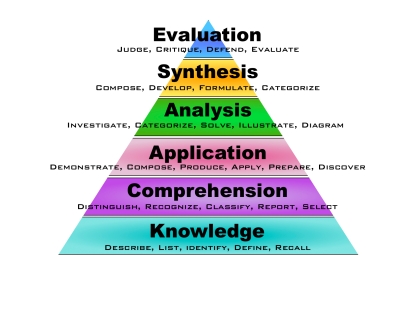Teaching is tough! It doesn’t matter the age of the pupils you’re teaching or the type of school you are in, the job is hard. It’s really difficult to communicate to a non-teacher just how all-consuming the job is, or why you can’t switch off from it when you get home. It’s also difficult for others to comprehend just how many problems, questions, demands and stresses you deal with in the average lesson, let alone the full school day or a year! So, here are my top ten tips for keeping your sanity whilst teaching the future Einsteins of today!
1) For anyone starting off as a new teacher its important to realise that things do get better. Everything gets easier and quicker and you’ll soon discover that something that used to take multiple hours, now only takes you a few minutes. This is especially true for planning. I remember scrutinising each individual lesson plan and writing them all up with every possible differentiation technique I could squeeze in and each with their own individualised resources. I would run the lesson over and over again in my head before I taught it and would, in some cases, even dream about it the night before! This all passes. Planning takes minutes, not hours and no, differentiation and individualising work never goes away, but it no longer requires the same amount of brain space anymore. You can begin to reuse things you’ve done before and you can remember ideas and lessons that have worked well in the past and execute them quickly and simply. Push through the initial planning – hang in there!
2) For lower ability groups, keep everything logical and simple. When I was training, one major mistake I made was that I would develop and set individual tasks and exercises. I never really considered the journey. This is really important. Your students will get so much more out of the lesson if they can see where it is going and identify with the steps you’re taking. Keep it simple and start off with something you know they can all do. Give them a 5 minutes starter activity to get them on side. This boosts confidence and instantly makes them feel like they can achieve. Your pupils are aware of their own limitations and struggles – if they already think they can’t do the subject and then you give them something at the start of a lesson that they can’t do, you’re going to lose them.

Blooms Taxonomy Pyramid
3. Linked to number 2 – use Blooms Taxonomy as a lesson planning structure. This is a nice easy way to build up activities in the classroom. It supports lower ability pupils as well as pushing those who are needing an extra challenge. In addition, it makes a really nice building block to encouraging your young pupil to think about ideas critically and in more detail. They won’t even realise you’re leading them there and they’ll leave the room feeling as if they’ve made progress and have achieved something. (This, obviously, looks great if you also happen to be observed…).
“teaching is a lifestyle, not a job!”
 . If you’re in a writing heavy subject, like English, then you’re going to have to find survival tactics for marking. You cannot physically mark every sentence, that every pupil, in every class is going to produce. It’s huge and you will soon feel like you’re drowning in a sea of poorly written and mind-numbingly boring stories. Marking is a particularly large problem when it comes to large exam classes. You want to set them practice essays and questions, but when are you going to be able to mark them? Sometimes the simple answer is, you’re not. So you have to get them to pick out their own, and their partner’s, strengths and weaknesses. They can’t do this alone though, you need to train them to know what they’re looking for. Give them success criteria.
. If you’re in a writing heavy subject, like English, then you’re going to have to find survival tactics for marking. You cannot physically mark every sentence, that every pupil, in every class is going to produce. It’s huge and you will soon feel like you’re drowning in a sea of poorly written and mind-numbingly boring stories. Marking is a particularly large problem when it comes to large exam classes. You want to set them practice essays and questions, but when are you going to be able to mark them? Sometimes the simple answer is, you’re not. So you have to get them to pick out their own, and their partner’s, strengths and weaknesses. They can’t do this alone though, you need to train them to know what they’re looking for. Give them success criteria.“I want you to scan through your own work and identify comparisons you’ve made in your essay and highlight them”.
“Don’t smile before Christmas.”
A common piece of advice often batted about but this is not to be taken literally. Although, with this one, you have to be careful. You have to establish your boundaries and classroom rules quickly. If you let things slip at the very beginning, it’s almost impossible to claw it back from the brink of chaos. Believe it or not, pupils actually like the strictest teachers the most. They need direction and guidance and if you’re treating your students like you want to be their best mate, you’re not going to fulfill this role and they probably won’t respect you. They don’t need more friends; they need a teacher. If you start off accidentally too strict, you can always relax and ease off in future lessons, it’s always better to be too strict than not strict enough. You can smile though, you’re not a robot. You can still have clear rules, boundaries and high expectation and be a happy, smiley person. You don’t have to be miserable.
